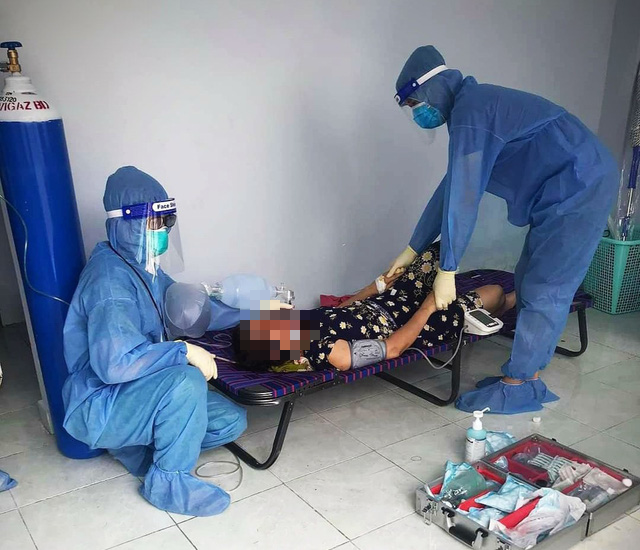COVID-19 patients tend to begin suffering serious symptoms between the seventh and 14th days, doctors stated, adding that they should contact health workers as soon as their condition worsens.
Many asymptomatic COVID-19 patients have developed serious conditions on their second week, according to Dr. Tong Ho Tu Phuong, who is in charge of treating patients with no or mild symptoms at a makeshift COVID-19 hospital in Ho Chi Minh City.
There are about 2,500 patients at this infirmary, Dr. Phuong added.
She mentioned an elderly patient who has a history of high blood pressure.
The woman had been in good health status before having such symptoms as difficulty breathing and fatigue on July 13.
As her SpO2, which is the amount of oxygen-carrying hemoglobin in the blood, was only at 70 percent, doctors gave her an oxygen mask and brought her to the emergency room.
She was then transferred to a COVID-19 hospital for patients with serious symptoms for further treatment.
At infirmaries for COVID-19 patients with mild or no symptoms, doctors mainly check on their patients via video calls, Dr. Phuong said, adding that they will conduct direct examination if the patients show signs of more severe symptoms.
Patients are advised to pay attention to such signs as rapid breathing, shortness of breath, chest pain, and pale skin, as they indicate worsening conditions.
The doctor stressed that patients must promptly contact health workers if they notice these signs in order to have their SpO2 measured.
A SpO2 reading of under 93 percent can mean that the lungs have been damaged, thus patients must be transferred to higher-leveled hospitals for further treatment.
Obsessed or elderly patients, or those with such underlying conditions as hypertension, diabetes, and heart diseases, should be monitored more closely.
“Asymptomatic patients must not come into contact with each other, keep good personal hygiene, drink plenty of water, consume sufficient nutrition, fruits, and vitamin C, perform light exercises, get enough sleep, and avoid stress,” Phuong suggested.
They should measure their body temperature with provided thermometers regularly.
Patient should also inform health workers if they start to have common symptoms including a fever, headache, body aches, coughing, a runny nose, nausea, and diarrhea, Dr. Phuong added.
Like us on Facebook or follow us on Twitter to get the latest news about Vietnam!



























